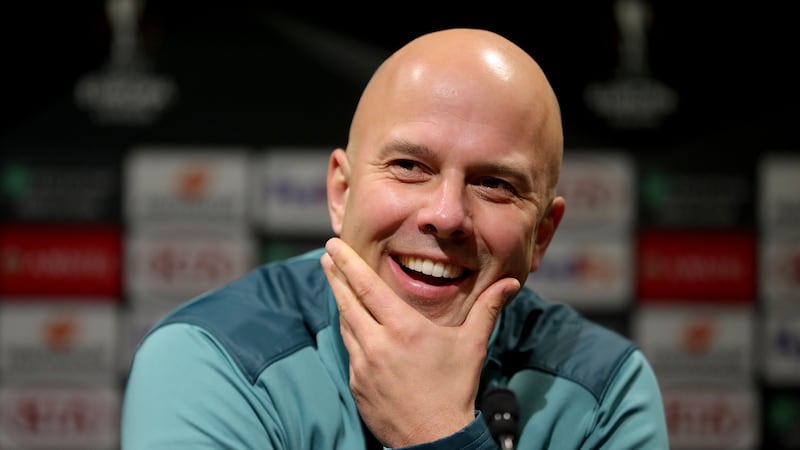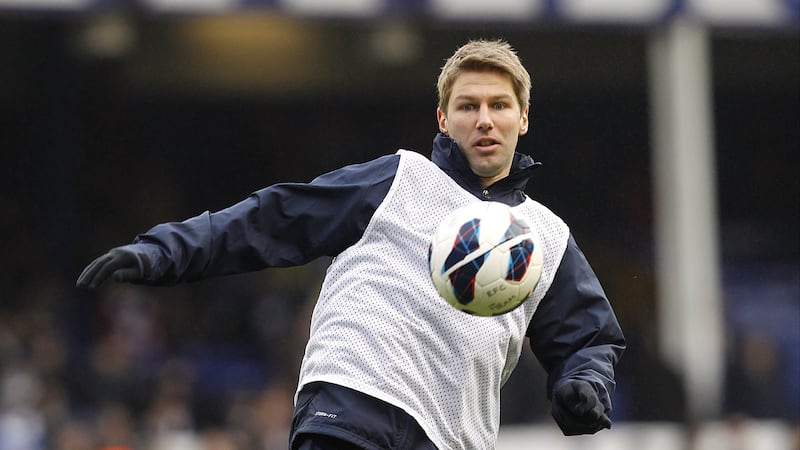"Peter Schmeichel had captained the side in my absence. The manager told me he wanted Peter to continue as captain for the pre-season tour. I wasn't too pleased. Even less so when, before our opening game, Schmeichel showed no indication that he was prepared to return my armband. No welcome back Roy, here's your armband. No f****** chance with Peter."
- Roy Keane's autobiography (2002)
HAVING been appointed Republic of Ireland correspondent for the Irish News in 2001, I caught the tail-end of Roy Keane's turbulent international career. Keane was a fascinating character - both on and off the field. The players' media rota dictated that Keane probably did two or three pre-match press conferences during Ireland's successful qualification campaign for the 2002 World Cup finals in the Far East. On the eve of winning his 50th international cap against Cyprus, Keane met with the Irish press in the team hotel. While reaching a half-century of caps meant "absolutely nothing" to him, the Cork man was in jovial mood that sunny afternoon in Limassol. But the press conference that stands out was the one he gave the day before the Republic's World Cup qualifier against Holland at Lansdowne Road in September 2001. In a room packed to the rafters with press from all over Europe, observing and listening to Keane was pure theatre. At the time Jaap Stam had been controversially jettisoned by United manager Alex Ferguson. To Keane's annoyance, one particular Dutch journalist persisted in asking questions about Stam's Old Trafford departure. With an ice-cold stare and words laced with bad intent, Keane turned to the journalist and said: "This press conference is about Ireland playing Holland, not a press conference about Jaap Stam - so let's leave it at that." The Dutch journalist got the message. Loud and clear. Keane was still at his peak back then. His performances throughout the 2002 World Cup qualification campaign were the key reason why Ireland reached the finals. His midfield displays against Portugal and Holland at Lansdowne Road were particularly magnificent. Keane may have played in an era where Zidane, Figo and Ronaldo (of Brazil) were the celebrated kings of the game, but the Manchester United captain could be just as influential.
In fact, in a lot of Keane's midfield performances something more virtuous could be found in the way he grabbed hold of and bossed football matches. Keane at his ferocious best was a sight to behold.
Of course, one of the saddest images during my time covering the Republic came when Keane ended his international exile in a friendly game against Romania in 2004 under Brian Kerr. In those few short years away, which included snubbing the chance to play at the 2002 World Cup finals, Keane had firmly entered the twilight of his career. Like many who were fortunate enough to watch Ireland's games from the press box, I loved Keane the footballer. It's much harder to love Keane the man and Keane the manager because since he hung up his boots, a lot of his public pronouncements have been cringe-worthy.
Of course, the Cork man still has his followers. For many Manchester United fans, Roy Keane will always walk on water. For others, he's nothing more than a guilty pleasure - a cartoon character that boosts ITV's ratings every time he speaks as a football pundit before, during and after games. He's like the bad guy in the movies who we like to root for. You know his general behaviour is reprehensible but still you retain an irrational soft spot for him. Keane, of course, has been linked with the Republic of Ireland managerial vacancy. If he ever netted the post he would single-handedly put a couple of thousand on the readership figures of the Irish News, or indeed any newspaper in Ireland, before big international matches. But he'd be the wrong man for the job.
Moreover, the timing of Alex Ferguson's scathing attack on his former captain, in yet another autobiography from the Scot, won't have done Keane's albeit slim chances of succeeding Giovanni Trapattoni any favours. Recalling the beginning of the end of Keane's time at Manchester United, Ferguson writes: "The hardest part of Roy's body is his tongue. He has the most savage tongue you can imagine... He was an intimidating, ferocious individual." On ITV on Tuesday night, Keane fired back at his former manager. "I remember having conversations about loyalty when I was at the club," said Keane. "I don't think he knows the meaning of the word." Keane was right. For a man who demanded loyalty from his players, it was rather pathetic of Ferguson to release a kiss-and-tell, titillating account of his time as United manager. Why castigate the players that helped make you a great manager? Ireland would not have qualified for the 2002 World Cup finals without Roy Keane. Likewise, Alex Ferguson wouldn't have won as much as he did without the fiery Cork man. During Keane's peak years, United claimed seven Premiership titles and a Champions League. To trash some of your best players to sell books is really astonishing for a man of Ferguson's stature. What is the motivation? A few million quid more in your bank account? Ego? Revenge? Or a mixture of all three?
Of course, to take sides is futile, for there is no moral high ground in the most recent Ferguson-Keane spat.
Keane, remember, did some trash-talking of his own in his 2002 autobiography. Keane lectured Ferguson on loyalty. Where was Keane's sense of loyalty towards Peter Schmeichel - a man who helped Keane to be successful at United? Ferguson was a great manager and Keane a great player. That's where the admiration stops because writing the kind of autobiographies that they did serves only to reduce their own standing in the game.

